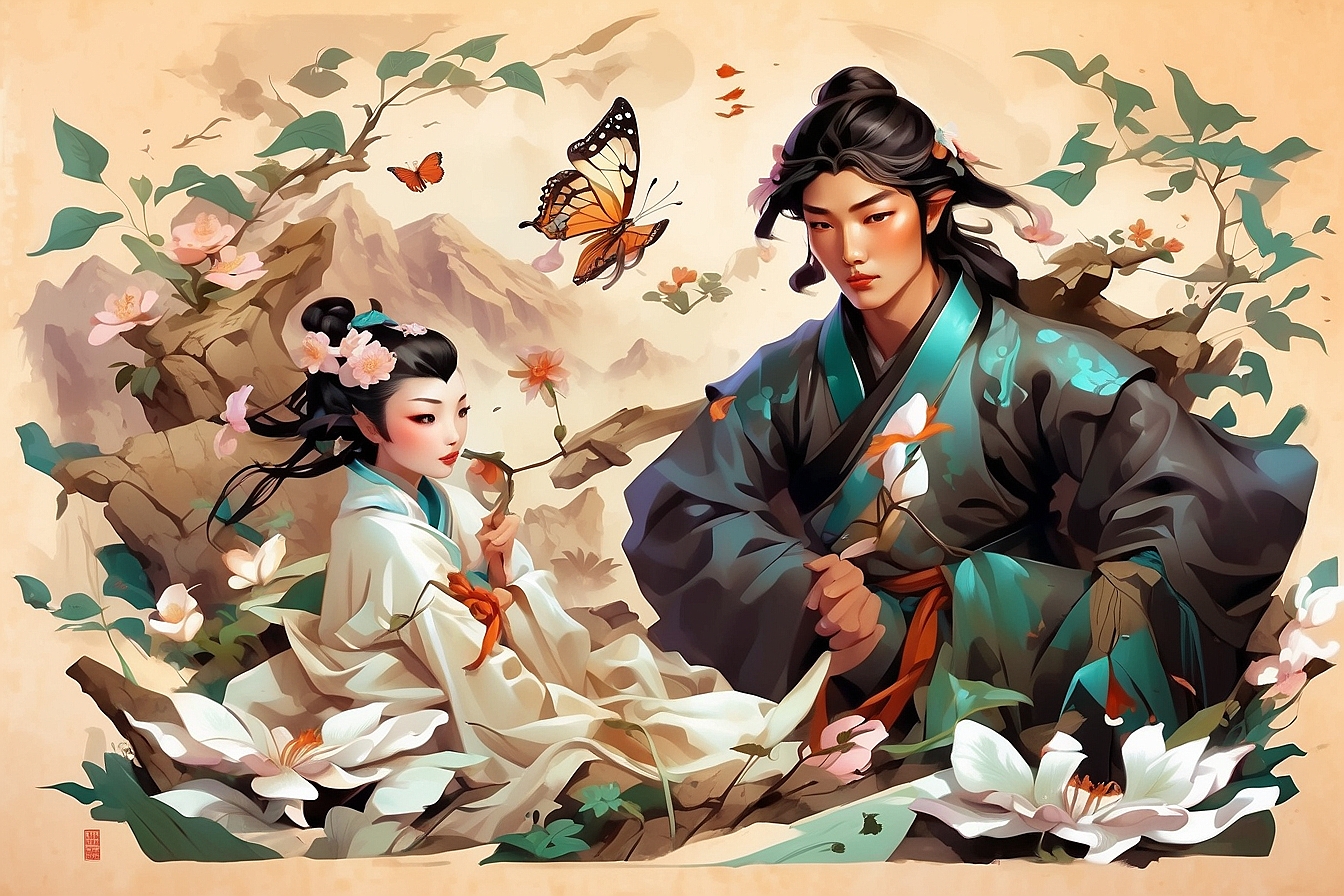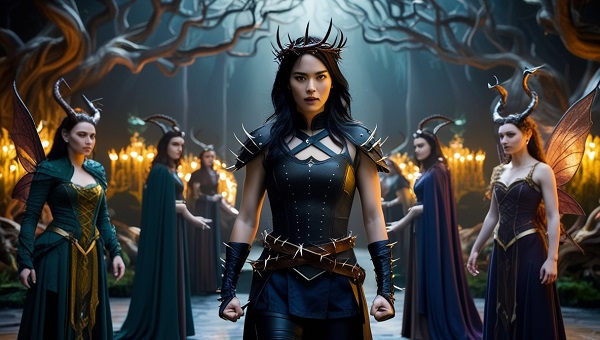Chinese mythology is rich with captivating, symbolic stories. These stories have been passed down through generations. They have shaped the cultural and spiritual fabric of the country. Here’s a glimpse into some of its most famous myths that explain Chinese mysticism.
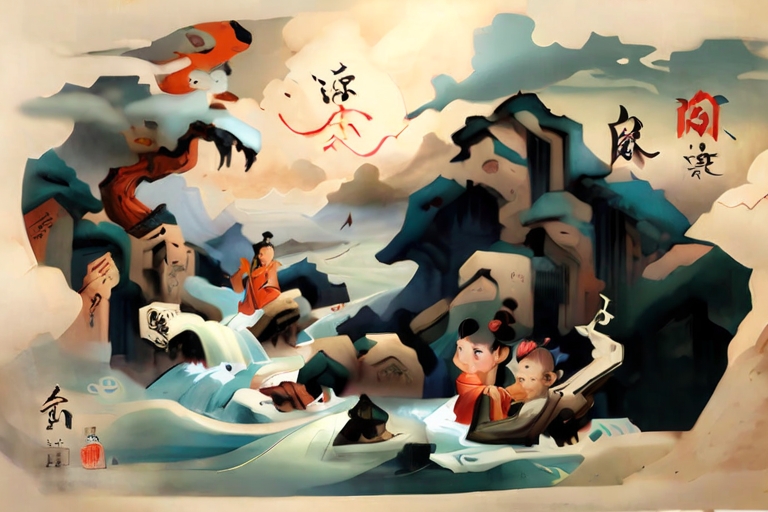
Famous Chinese Myths About Creation, Heroes, and Deities
The myths use vivid storytelling and rich symbolism. They entertain and show the complexities of human nature and the mysteries of the cosmos.
You can find the timeless stories below. They have woven themselves into China’s culture, passed down through generations. They explore the themes of love, betrayal, bravery, and destiny.
1. The Pangu Myth
In the beginning, there was chaos. Then, Pangu, a giant creature, emerged and separated the sky from the earth. His body transformed into mountains, rivers, and the very essence of the world.
2. Nuwa Mends the Sky
The pillars holding the sky broke. The goddess Nuwa patched the heavens with colorful stones. She also molded humanity from yellow clay, giving birth to the human race.
3. The Eight Immortals
Eight individuals had unique magical tools, representing different aspects of life. They embarked on a legendary journey across the sea to the Isles of the Blest.
One of the most famous stories involves them crossing the East Sea on the back of a giant fish.
4. The Epic of King Yu
A devastating flood threatened China. King Yu toiled for thirteen years to control the waters. He is revered as the founder of flood control and a symbol of perseverance.
5. The Moon Rabbit
The story explains the dark spots on the moon. They are from a rabbit pounding herbs for the moon goddess Chang’e. She was condemned to lunar exile.
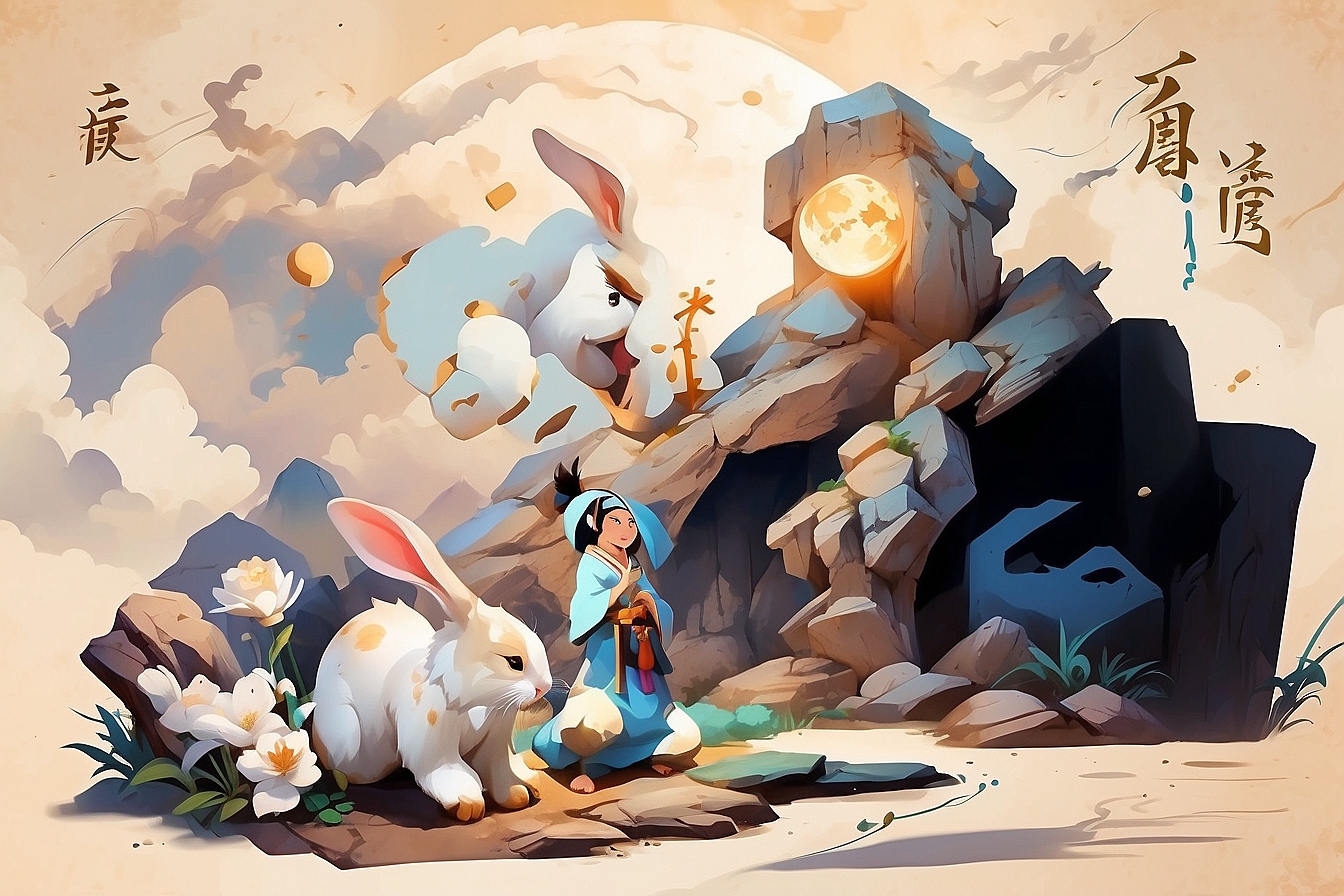
6. Niulang and the Weaver Girl
A celestial cowherd and a weaving fairy defy the rules of heaven to be together but are separated by the Milky Way. They can only reunite on the seventh day of the seventh lunar month. They meet on a magpie bridge built by sympathetic birds.
7. Monkey King
Journey to the West is a famous myth and one of the Four Great Classical Novels of Chinese literature. It tells the adventure of Sun Wukong, the Monkey King. He is born from a stone. He gains great powers and goes on a journey with the monk Xuanzang to get sacred Buddhist scriptures. Along the way, they encounter various challenges, monsters, and gods.
8. The Moon Goddess
This myth revolves around the archer Hou Yi, who saves the Earth by shooting down nine of ten suns. As a reward, he receives an elixir of immortality. However, his wife, Chang’e, drinks the elixir. She then ascends to the moon and becomes the Moon Goddess. The story explores themes of sacrifice, love, and the consequences of immortality.
9. The Butterfly Lovers
Many call it the Chinese Romeo and Juliet. The tragic love story tells of Liang Shanbo and Zhu Yingtai. Disguised as a man, Zhu attends school with Liang and becomes close friends. Liang later discovers Zhu’s true identity, but it’s too late as she is already promised to another. The story explores themes of gender roles, love, and societal expectations.
10. The Legend of the White Snake
A white snake spirit and her green sister transform into women, finding love with a mortal by West Lake. A jealous monk separates them. He forces the white snake to battle to protect her love. This leaves their fate uncertain.
Recommended: Mysticism in Literature | Characteristics and Famous Writers
11. Guardian Lions
China’s stone lions aren’t just statues. This famous Chinese myth says they come alive at night, a male with a ball (power) and a female with a cub (protection). They guard palaces, temples, and homes. They ward off evil spirits and keep good fortune in.
12. Chinese New Year
Nian, a fearsome beast, emerged from the sea each year’s end to terrorize villages. Villagers hid in fear, until a wise elder, clad in red, used firecrackers and loud noises to scare Nian away. Now, red decorations and booming sounds welcome the New Year, keeping Nian at bay.
13. How the Chinese Zodiac Started
There are many famous myths in China about how the Chinese zodiac came to be. The most popular story tells of a race held by the Jade Emperor, the ruler of heaven.
According to the legend, the Jade Emperor wanted to create a way for people to keep track of time. He decided to have a race. The first twelve animals to cross a rushing river would each have a year named after them in a repeating cycle.
The rat realized it was too small to win a straight race. It hitched a ride on the kind ox’s back. Then, it jumped off at the last minute to claim first place. The ox came in second, followed by the tiger and rabbit. Even the mighty dragon could have flown across. But, it stopped to help some villagers along the way and arrived fifth.
14. The Story of Boya and Ziqi
Bo Ya was a master musician. He found his soulmate, Ziqi, who understood the hidden message in his music. It was a message of mountains and flowing water. Ziqi’s death left Bo Ya heartbroken, leading him to break his instrument and never play again.
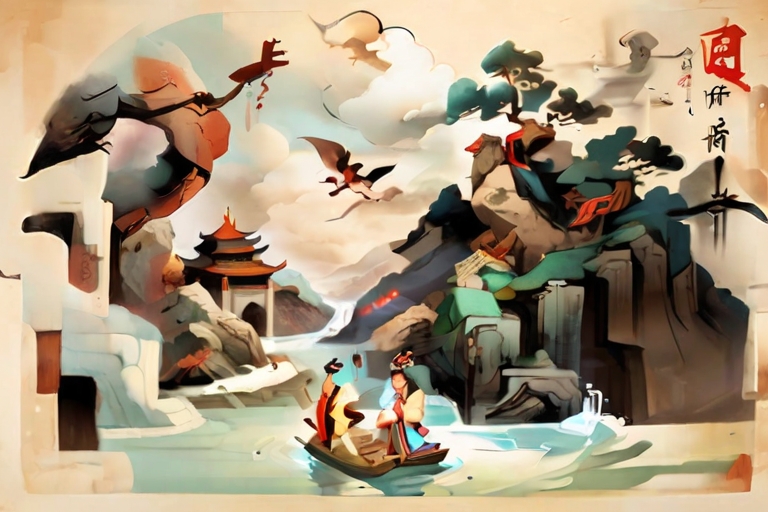
15. The Unicorn’s Prophecy
In Chinese legend, a mythical unicorn, the Qilin, visits a woman named Cheng. The Qilin prophesies a son who will be a great leader, but without a land to rule. Cheng’s son, Confucius, grows wise and influential. He has a lasting impact on China despite never being king.
Frequently Asked Questions (FAQs)
Ques. Who is the most popular Chinese God?
Ans. Pinpointing one god is tricky! Caishen, the God of Wealth, is widely worshipped for prosperity. However, the Jade Emperor, ruler of heaven, is another strong contender.
Ques. What are the Chinese gods called?
Ans. Chinese gods have various titles. Shen (神) means spirit or god. Xian (仙) refers to immortals. Tian (天) is for deities of the sky.
Ques. What is the oldest Chinese legend and myth?
Ans. It’s hard to say for sure. But, creation myths, like Pangu separating the heavens and earth, are likely very old. Legends say Nuwa created humanity. Another says Hou Yi shot down nine suns. Both are contenders for ancient status.
Ques. What is the importance of myth and legend in China?
Ans. Chinese myths and legends are crucial for understanding their culture. They explain the universe’s origin, societal values, and moral codes. They’re also entertaining stories passed down through generations.
These famous Chinese myths continue to inspire literature, art, and popular culture. They offer insights into the values, beliefs, and imagination of Chinese people. This has been true throughout history.
Recommended: Unveiling the Famous Stories of Greek Mythology: Heroes, Monsters, and Gods

